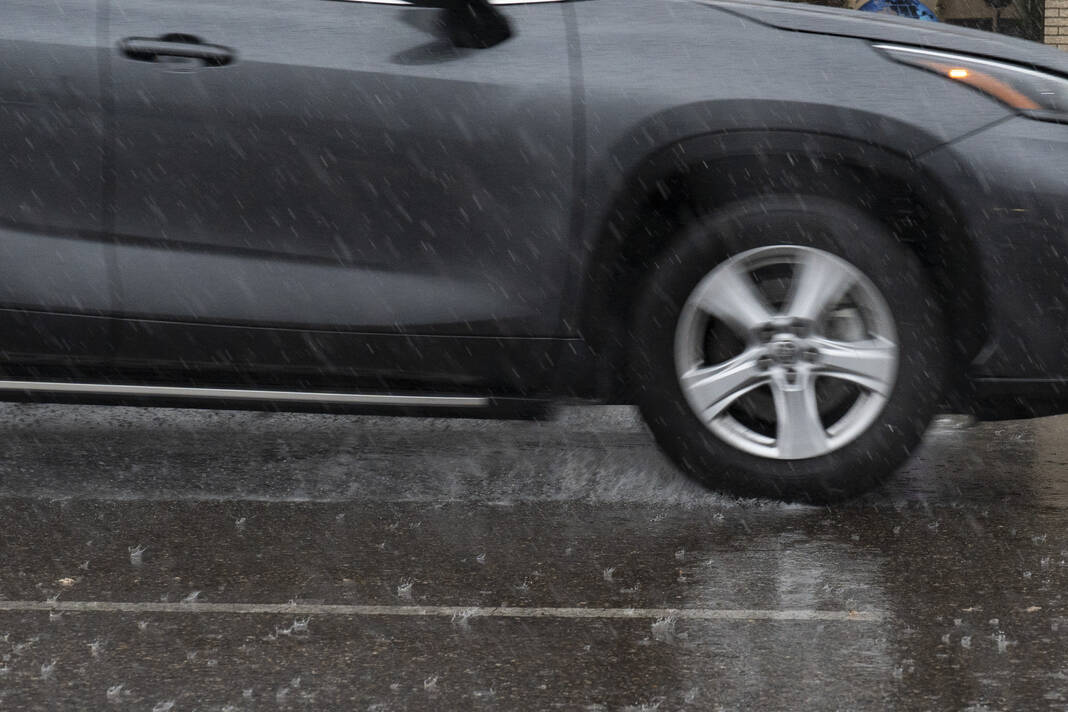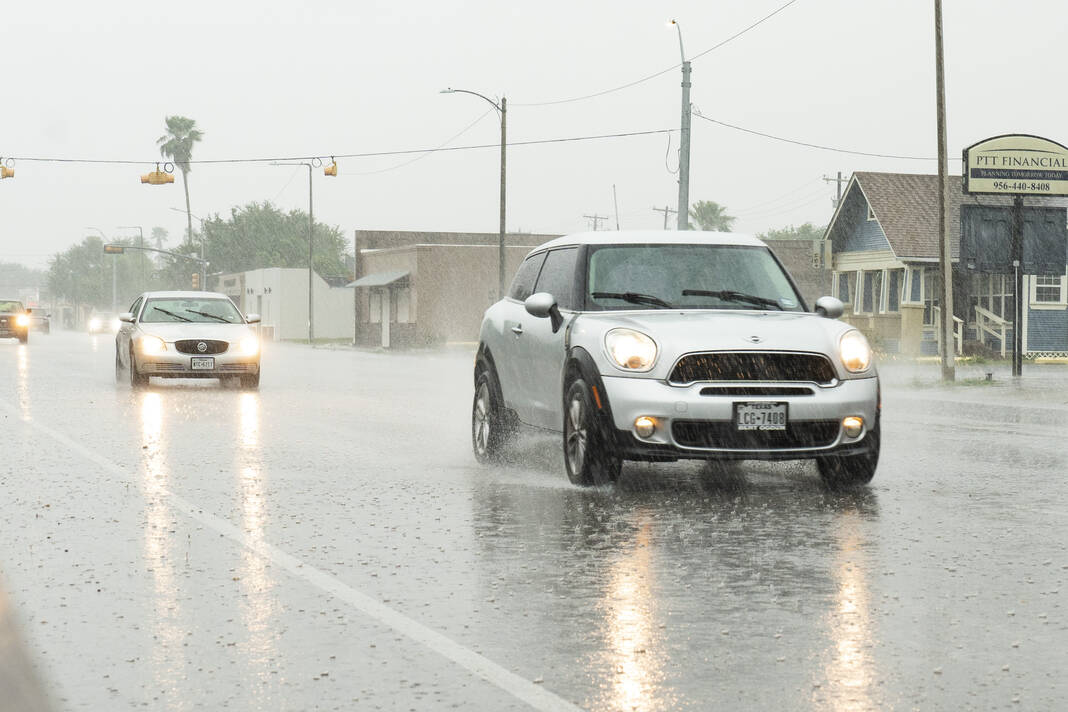HARLINGEN — On Tuesday, the first heavy rain in months gave city officials their first chance to gauge the impact of a new law giving police power to fine motorists whose driving stirs waves in floodwaters rising at least six inches high.
While residents pushed city commissioners to pass the law, officials are facing an ordinance they admit will be hard to enforce.
For decades, homeowners and merchants have complained about cars and trucks driving fast through flooded streets, pushing floodwaters into their doors.
While many cities have drafted ordinances making it a crime for motorists to stir wakes in flooded streets, officials here didn’t have the law in their books.
Then in December, commissioners passed the ordinance, setting fines as high as $500 for violations.
”No person operating a motor vehicle on a flooded street shall operate the vehicle in a manner as to cast or discharge a wave that carries beyond the edge of the street or curb line,” the ordinance states, describing a flooded street as a roadway in which water has risen six inches or higher. “Any person violating this section shall be punished by a fine not less than $100 or not more than $500.”
Now, the city’s media department is working on a campaign aimed at alerting residents of the new law.
Residents call for law
While campaigning for his commission seat last year, Commissioner Daniel Lopez said residents were calling for a law aimed at stopping cars and trucks from pushing floodwaters into their homes.
“Unfortunately, when waters rise people will unnecessarily drive through our streets and push water into buildings,” Lopez, who oversees District 2, stated. “While block walking on the campaign trail, the neighborhoods that could least afford unnecessary home repair and renovations kept bringing this issue up to me and how they wanted a no-wake ordinance.”
After winning election, Lopez began working with Commissioner Ford Kinsley to draft the ordinance.
“Spearheading Harlingen’s new no-wake ordinance was an important endeavor because it could prevent further damage to residents’ properties, homes and businesses,” Lopez stated. “City staff has done an excellent job of putting the ordinance into practice by getting the necessary departments on board. Without them, it would just be ink on paper. It is important to us that citizens’ concerns are heard, analyzed and resolved. This is just one of many steps we are taking to improve the lives of our neighbors and Harlingen — the Capital City of the Rio Grande Valley.”
Making waves
During the June 2019 flood, Kinsley watched as cars pushed “waves” of floodwater into his front yard.
“When the street floods, people in larger vehicles go at increased speed and they get water in the front door,” he said.
Kinsley said other cities made that a crime, but Harlingen didn’t have a law in its books.

Downtown takes down barricades
For years, motorists were driving big pickup trucks through flooded downtown streets, pushing floodwaters into shops along the Jackson Street business district, said Bill DeBrooke, a property owner who launched the downtown area’s revitalization more than 30 years ago.
“Over the years, this has been a serious problem in the downtown,” he said.
At the problem’s height 20 years ago, officials were barricading downtown streets to stop motorists from stirring floodwaters, DeBrooke said.
“These trucks with big tires would come running down the street, creating waves,” he said. “At one point, they gave us barricades so people couldn’t do it.”
Now, the problem’s died down, DeBrooke said.
“I think people are more careful now,” he said. “Flooding has become such an issue in the Valley, not too many people are not affected. I think they’re more sensitive not to create the waves.”
Law hard to enforce
At the police department, Sgt. Larry Moore said the new law “will be hard to enforce.”
“The officer has to visibly see the cars going through the flooded area,” he said.
As the city gears up for June’s opening of the hurricane season, city officials are working to prepare social media posts and videos alerting residents of the new law, Cristina Garcia, the city’s spokeswoman, said.
“It’s incumbent on the person to realize it exists and not drive at speeds that create a wake,” Kinsley said. “If people know there’s a potential consequence, they’ll keep it down so they don’t cause the wake and damage people’s property. Let’s not make a bad situation worse.”





